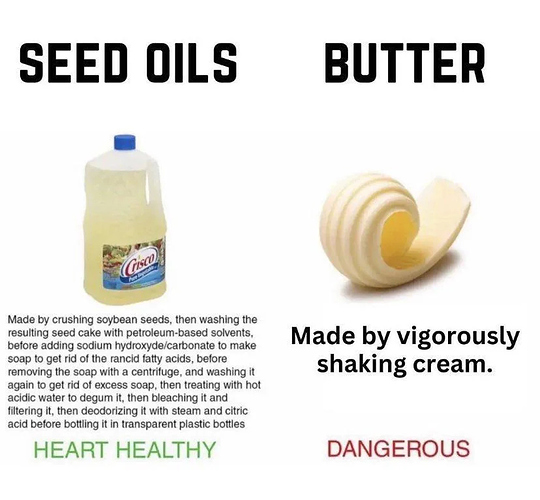A guy whose blog I’ve been tending to reading more lately is William Briggs - who also calls himself, “Statistician to the Stars!” Yeah, he’s a Ph.D. mathematician, with his bio here. He’s also part of the initiative to address all the bad science being reported.
This post is about a study published March 6, 2025 by the JAMA Network and it’s so bad it’s almost comically bad. Except that you know it’s going to adopted by the people trying to push crap like this on us.
It’s not just Food Frequency Questionnaires; it’s worse:
“The intake of plant-based oils (corn, safflower, soybean, canola, and olive) was ESTIMATED based on the reported oil brand and type of fat used for various cooking methods, including frying, sautéing, baking, and salad dressing, and all of the food composition data for calculating oil intakes were updated EVERY 4 YEARS. “
We’re talking butter amounts in the vicinity of 1/4 teaspoon being allegedly dangerous.
And people get paid for this…



 The other one is disgusting and came out of a cow
The other one is disgusting and came out of a cow 

